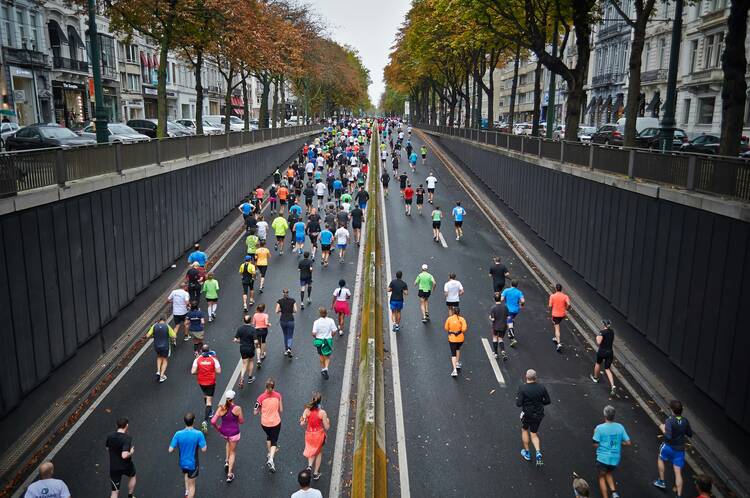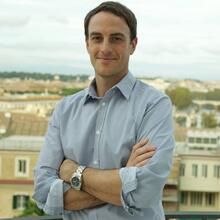A Reflection for Friday of the Sixth Week of Easter
You can find today’s readings here.
“Do not be afraid. Go on speaking, and do not be silent, for I am with you.” (Acts 18:9)
When the Boston Marathon concluded last month, stories poured out about the competitors who finished the race. Just finishing the race—a great accomplishment in and of itself. I couldn’t help but think of that poetic reflection of St. Paul in Second Timothy as his mission is ending, his martyrdom imminent: “I have competed well; I have finished the race; I have kept the faith.”
Perhaps Paul was a sports fan. It would make sense. He was impressive in the way an elite athlete is impressive: tirelessly pursuing a goal and willing to go all-in to accomplish it despite uncertainty, setbacks, immense physical stress and the probability of failure. One can’t help but marvel at his determination and commitment.
Elite athletes can also be intolerable. Their singular focus can make them exhausting to be around as their lives lack an ordinary, everyday balance that most of us desire. When Paul first comes to Jerusalem after his conversion, he causes such drama and tension that the Christians ship him off to Tarsus. Then, Luke writes, “The church…was at peace” (Acts 9:31).
It’s easy to admire Paul from a distance as we read through the Acts of the Apostles. But I don’t think he was easy to be around or to work with. I can’t relate well to Paul, in the same way that I can’t relate well to an elite athlete. Like most of us, I don’t have the will or discipline to pursue the Kingdom like that.
But that’s ok. Acts is filled with silent witnesses and unsung heroes, but they are always mentioned in the credits; people like Aquila and Priscilla, Sosthenes, Silas and Timothy, Titus Justus and Crispus. Paul is unique but he’s never alone on the journey. The greatest saints need the help of other saints.
Like Paul, the greatest athletes rely on others. These people are not competing in the race or seeking the spotlight, but they are there. Often, the first thing a winning athlete will do is thank these individuals without whom they couldn’t have won. In two of his three previous runnings of the Boston Marathon, Ethiopia’s Sisay Lemma did not finish the race. When he won on his fourth attempt last month, he said afterward, with the help of his friend and interpreter, “I wanted redemption.”








